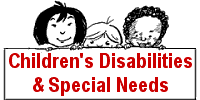 |

| |
|
| ||
Auditory ProcessingBy Laura Dyer, Author of Look Who's Talking! Hearing problems include a number of disorders that involve the outer, middle, and inner ear and the neural pathway to the brain. When a child has difficulty understanding the signals that his ears send to his brain, this difficulty is called an auditory processing disorder. This disorder is sometimes misdiagnosed as attention deficit hyperactivity disorder (ADHD). Although these disorders share the symptoms of a short attention span, auditory processing disorders don't respond to the medications that often help a child with ADHD. Children suffering from auditory processing disorders are frequently described as "not listening," "unable to follow direction," or "unable to learn from information they hear." Symptoms include the following:
If you child shows one or more of these symptoms, talk to your doctor about scheduling a screening to rule out a hearing problem. If hearing isn't the problem, get a referral to a speech-language pathologist to determine if your child has an auditory processing problem (as opposed to a different type of learning disorder.) An auditory processing problem can be serious. It may require a team of professionals to make an accurate assessment and determine an appropriate treatment. In the meantime, here are a few things you can do to ease your child's frustration and help improve communication.
Excerpted from Look Who's Talking by Laura Dyer, with permission from the author. |
|
|
ADHD ARTICLES ADHD BOOKS |
Comeunity : Parenting | Adoption | Special Needs
Comeunity www.comeunity.com Parenting Support for Your Unique Family